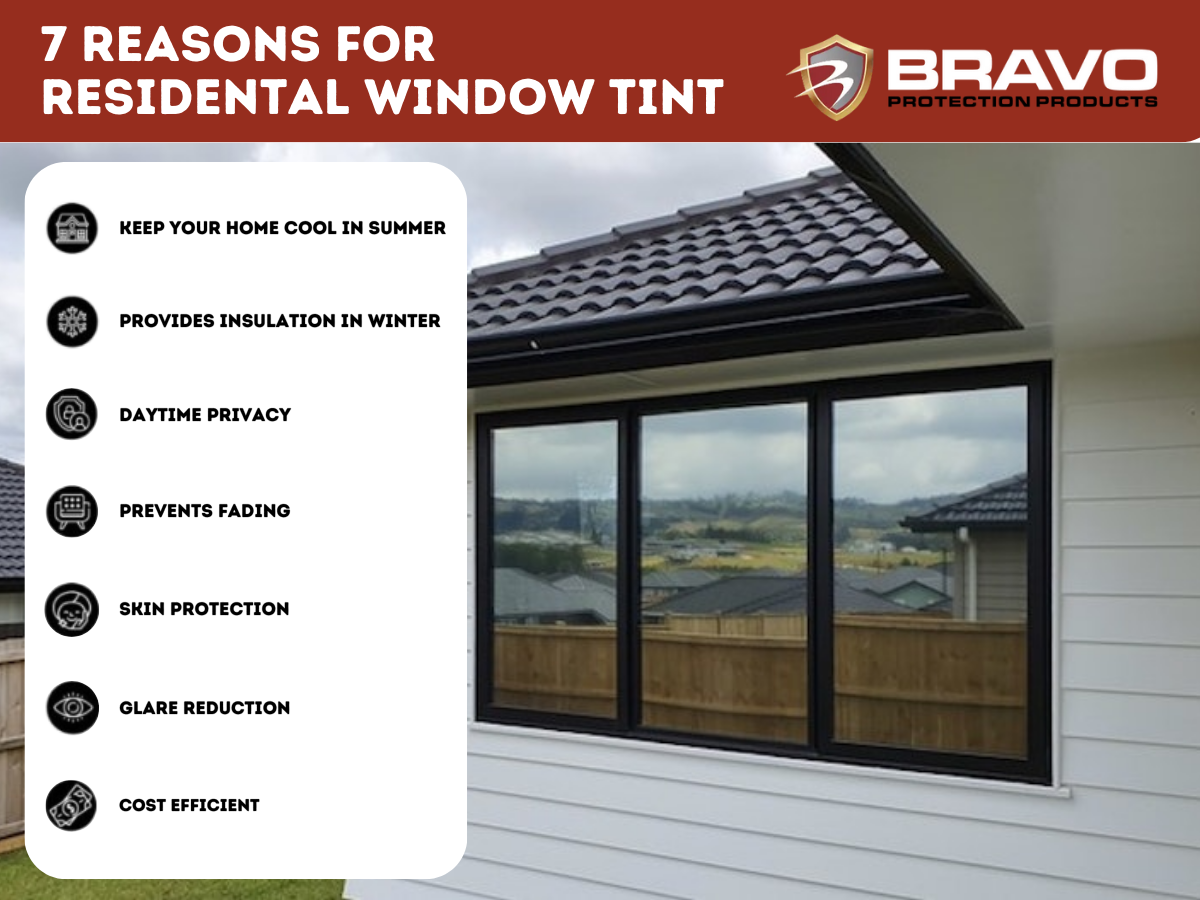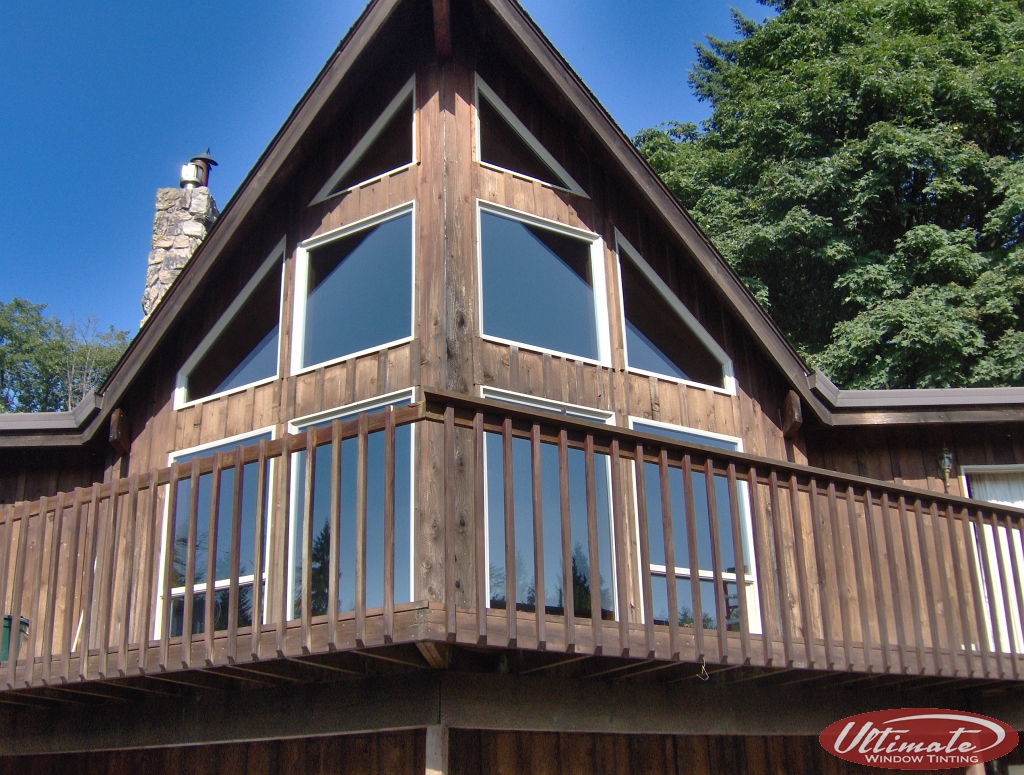Residential Window Tint: The Eco-Friendly Option for Your Home
Residential Window Tint: The Eco-Friendly Option for Your Home
Blog Article
How Residential Home Window Tinting Improves Your Home's Power Effectiveness
Residential home window tinting offers a compelling service for house owners looking for to boost energy efficiency within their living spaces. By applying specialized films to windows, it successfully lowers warmth transfer, thereby stabilizing indoor temperatures and reducing the requirement for extreme home heating or air conditioning.
Recognizing Home Window Tinting
Recognizing home window tinting is crucial for homeowners looking for to boost both convenience and power performance in their living rooms. Residential Window Tint. Home window tinting entails the application of a slim movie to the interior or exterior surface area of glass windows. This movie can substantially modulate the amount of sunshine and warmth that gets in a home, hence affecting interior environment conditions
There are different types of home window tinting films available, each with distinctive residential properties. The effectiveness of home window tinting is commonly determined by its Visible Light Transmission (VLT) percent, which suggests how much light can pass via the film.
Advantages of Energy Performance
Window tinting not just enhances visual appeals yet likewise plays a substantial function in boosting energy performance within domestic rooms. By decreasing warmth transfer through home windows, tinted films develop a more steady interior climate, which can result in considerable reductions in energy consumption for home heating and cooling. This power performance equates right into reduced utility expenses, giving house owners with significant long-term cost savings.

In addition, home window tinting enhances the convenience of living areas. By reducing glow and obstructing hazardous UV rays, colored home windows create an even more enjoyable environment, which can bring about enhanced well-being for passengers. The security versus UV rays likewise aids protect furniture and floor covering from fading, adding to the long life of home things.
Exactly How Tinting Functions
Tinting films run through a mix of advanced products and technologies made to control the quantity of solar energy going into a home. Primarily composed of polyester, these movies typically include metallic or ceramic particles that absorb and show heat. This double capacity allows them to substantially reduce the penetration of ultraviolet (UV) rays and infrared radiation while allowing noticeable light to travel through.
The effectiveness of home window tinting is gauged by its solar warmth gain coefficient (SHGC), you can look here which suggests just how much solar power is transferred via the home window. Lower SHGC values are better as they denote higher warmth denial. In addition, home window tints can feature a range of tones, allowing property owners to personalize their visual choices while enhancing energy effectiveness.
Moreover, these movies work as a barrier, avoiding warm loss during chillier months by mirroring indoor heat back right into the space. This thermal insulation effect complements the cooling benefits acquired during warmer months, adding to a balanced indoor climate year-round. By handling solar power successfully, household home window tinting not just boosts convenience yet additionally plays an essential duty in lowering power intake and decreasing energy expenses.
Selecting the Right Tint

There are various types of window films offered, consisting of colored, metalized, and ceramic. Ceramic movies give excellent heat control without jeopardizing exposure and are extremely long lasting, making them a preferred selection.
Noticeable light transmission (VLT) is another essential element, as it suggests the amount of natural light that can travel through the colored glass. House owners must choose a color with a VLT that matches their illumination preferences while still supplying appropriate glare reduction.
Additionally, evaluating the solar heat gain coefficient (SHGC) can help identify how well a tint can block warmth from sunshine. A reduced SHGC suggests much better heat control, ultimately boosting power effectiveness.
Installment and Upkeep Tips
Appropriate installation and upkeep are important components in making the most of the advantages of find out this here household window tinting. To achieve ideal results, it is advisable to work with a qualified specialist for setup. This guarantees that the color is used correctly, staying clear of air bubbles, wrinkles, or imbalance that could compromise efficiency. Professionals additionally use specialized tools and techniques, which can enhance the sturdiness and efficiency of the tint.
Adhering to installation, maintenance is vital to prolong the life of the window movie. It is advised to wait at least thirty day before cleaning up the colored home windows to permit the adhesive to treat completely. When cleansing, use a soft cloth and a gentle, ammonia-free cleaner to prevent harming the movie. Avoid rough materials that might scrape the surface area.
Dealing with these issues promptly can protect against more damages and maintain power performance. By sticking this contact form to these installation and maintenance ideas, property owners can ensure their home window tinting continues to provide substantial power savings and convenience for years to come.
Verdict
In conclusion, domestic home window tinting serves as an efficient solution for improving power efficiency within homes. By minimizing warmth transfer and blocking dangerous UV rays, window films add to lower energy usage and boosted indoor convenience.
Window tinting includes the application of a slim movie to the interior or exterior surface of glass home windows. By reducing heat transfer with home windows, tinted movies develop an extra stable indoor climate, which can lead to substantial decreases in energy usage for home heating and air conditioning.The effectiveness of window tinting is determined by its solar warmth gain coefficient (SHGC), which indicates how much solar energy is transferred via the home window. By managing solar energy successfully, household home window tinting not only boosts convenience yet also plays an essential role in lowering energy consumption and reducing energy costs.
By lowering warmth transfer and obstructing hazardous UV rays, window films contribute to reduce energy usage and enhanced indoor comfort.
Report this page